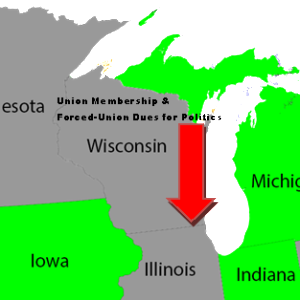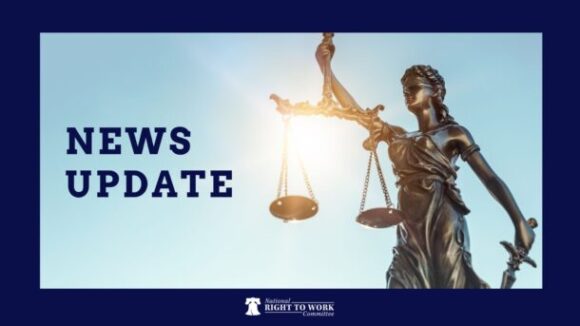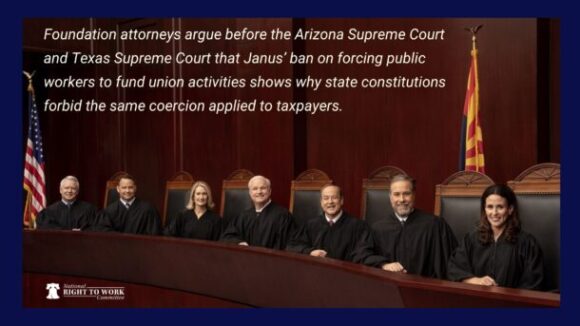DC-Area Transdev Driver Takes Case Regarding Union-Instigated Assault to Federal Appeals Court
Biden Labor Board claims ATU union did not violate law even after Transdev worker experienced slap and termination attempt from union officials
 With Wisconsin state worker’s given the choice whether to pay union dues, some unions are failing to get enough support to re-certify, the Examiner reports:
With Wisconsin state worker’s given the choice whether to pay union dues, some unions are failing to get enough support to re-certify, the Examiner reports:
Wisconsin Association for Correctional Law Enforcement and the education unit of Council 24 of the American Federation of State, County and Municipal Employees both lost bids to re-certify Thursday, according to the Milwaukee Journal Sentinel.
In the case of the teacher’s union, it just barely missed, winning 49.5 percent of its 664 eligible members. It needed a bare majority of 51 percent to continue. The union said it may challenge the results.
Journal Sentinel reporter Patrick Marley noted that some unions are not even trying: “Many unions did not bother to seek certification because of the challenges to winning the elections and the limited benefits of being recognized by the state.”
Walker’s reforms, called Act 10, prohibited most state and local government workers from being required to join a union as a condition of employment (firefighters and law enforcement officers were excepted). It ended automatic union membership dues deduction from those workers’ paychecks and limited the unions’ collective bargaining powers to just wages.
The latter point may be having a particular impact on the unions. Even those workers who were relatively happy with their unions may decide to leave now that the law has strictly limited what the unions can do for them.
According to Labor Department data, membership at Wisconsin’s AFSCME Council 40 — one of AFSCME’s four branches in the state — has gone from the 31,730 it reported in 2011, to 29,777 in 2012, to just 20,488 now.
That’s a drop of more than 11,000 — about a third — in just two years. The council represents city and county employees outside of MilwaukeeCounty and child care workers across Wisconsin.
The slide may accelerate. The Wisconsin Supreme Court ruled 5-2 Thursday to void a lower court ruling that prevented the Wisconsin Employment Relations Commission from scheduling certification votes. The lower court had argued the labor reforms themselves were unconstitutional. The higher court rejected that, allowing the votes to go forward.
“Many independent-minded civil servants have no interest in associating with government sector unions and they deserve to have their voices heard,” said Mark Mix, president of the National Right to Work Foundation, which represented five Wisconsin public school teachers in the case. “Act 10 protects those workers’ right to do so, and now these civil servants will be allowed to participate in the elections that they were promised to express their interests regarding their union representation.”
The legal wrangling over the law will continue, though, as critics claim it conflicts with another lower court ruling.

Biden Labor Board claims ATU union did not violate law even after Transdev worker experienced slap and termination attempt from union officials
NY Starbucks workers are challenging NLRB that refuses to let them hold decertification votes to remove unwanted SBWU union

Foundation attorneys argue before the Arizona Supreme Court and Texas Supreme Court that Janus’ ban on forcing public workers to fund union activities shows why state constitutions forbid the same coercion applied to taxpayers.